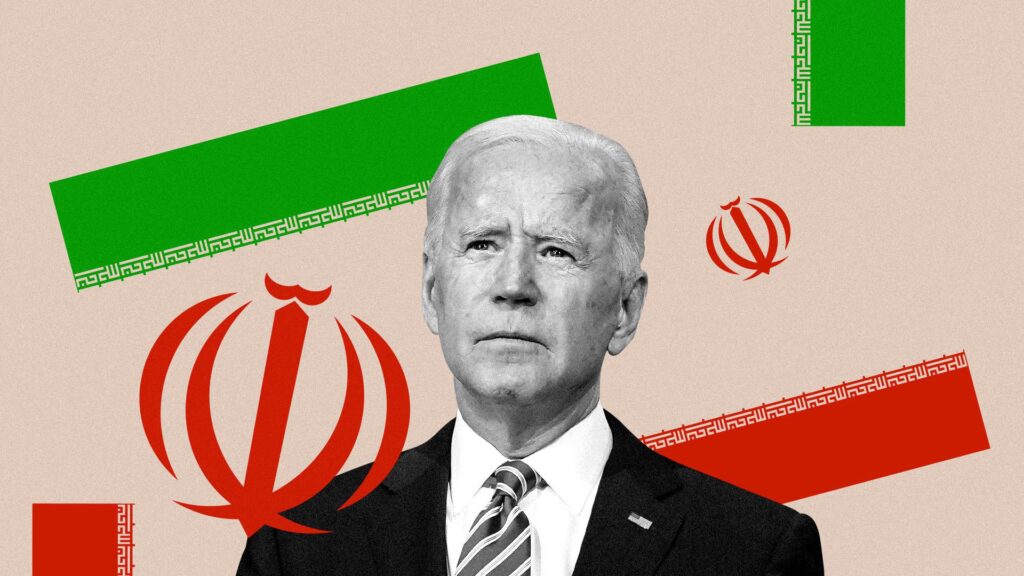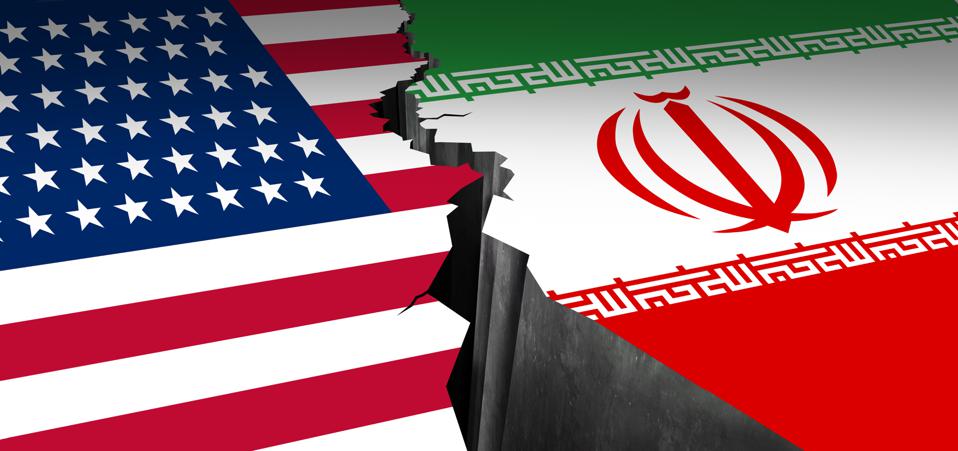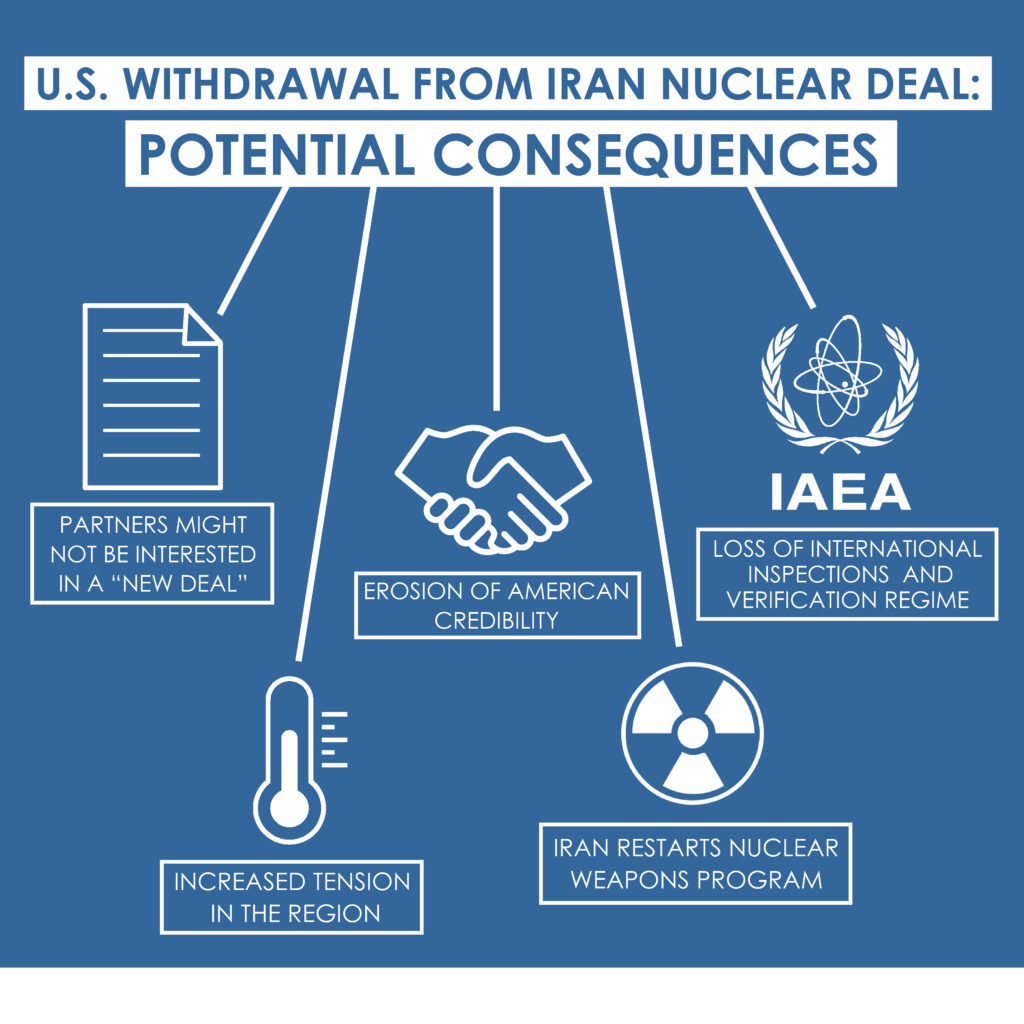The Joint Comprehensive Plan of Action (JCPOA)
Yesterday the Biden Administration made a formal move to begin talks with Iran regarding the Joint Comprehensive Plan of Action (JCPOA), also known as the 2015 Iran Deal. Slowing the “breakout time” and restarting the deal that would limit Iran’s ability to produce a nuclear weapon was a part of Biden’s campaign promises. Recall that the Trump Administration abandoned the deal in 2018. Leaving the deal was something that John Bolton fought hard to accomplish during his brief tenure as National Security Adviser. He tells his account in his book The Room Where it Happened. The major debate over the deal seems to be whether one person or another thinks it to be effective. However, what does effective mean in this situation?

The 2015 Iran Deal’s purpose was to stall Iran’s breakout time to produce enough fissile material for a bomb. Experts estimate the breakout time to be between 3 months to well over a year. David Albright (a former U.N. weapons inspector) argues that the estimate is closer to three and a half months if Iran decided to go all in. Iran has the capability of generating enough fissile material for a bomb. If Iran wanted to pursue nuclearization, they could. Moreover, Iran’s current ballistic missiles – armed with a small warhead – could threaten most states in the region. Iran posses a good range of precision ballistic missiles and also has drone capabilities. According to the Arms Control Association, Iran has the potential to strike 800 – 1,000 km. All this is to say that, undisturbed, Iran could easily be on its way to nuclear capability. What is fascinating is that most reports from the International Atomic Energy Agency (IAEA) from before U.S. withdrawal indicated that Iran was abiding by the deal (see this Atlantic article for an overview, but you can also view the IAEA report here. Also, see this timeline of reports that shows Iran was complying up through March of 2018). When the United States left the deal in 2018 and reimposed sanctions on Iran, the nation began to defect from the agreement. Europe did its best to keep the deal together, but it clearly showed signs of degradation. However, what is most interesting is that the IAEA does not believe that Iran is moving as fast as it could. If the goal was to slow Iran’s breakout time, then the deal was effective. If the goal is to prevent Iran from having the capability to develop a nuclear weapon altogether, then the deal is inadequate (if this is the goal, any deal will be inadequate in the near-term). Exploring why a nation desires a nuclear weapon will shed more light on why Biden is making the right decision in pursuing renegotiation.
Deterring Your Adversaries
The number one reason to acquire a nuclear weapon is to deter attacks by more powerful nation-states. Once a country joins the “nuclear club,” using conventional military operations on that state becomes much riskier. During the Cold War, once the United States and the Soviet Union both possessed nuclear weapons, scholars developed Mutually Assured Destruction (MAD) to describe the situation where each superpower – assuming second-strike capability – could destroy each other in a nuclear catastrophe that would have global consequences.
According to some, MAD turns the U.S.-USSR crisis situations into a game of Chicken, with the Cuban Missile crisis being the archetype. In the game of Chicken, two individuals face their cars toward each other and begin to accelerate in a straight line. The goal of the game is to be the player that never swerves, showing that you are willing to risk your own life to win the game – in other words, you are not a chicken. Game theory is often used to model this situation and the solution to the game demonstrates that someone always wins (staying straight) and someone always loses (swerving to avoid death), although the game is unable to tell us which player will have this advantage under imperfect information. The reason for this outcome is that both player’s worst-case outcome is staying straight, crashing, and dying in the wreck! MAD never happens in the stylized game of Chicken because someone always swerves. Cold War deterrence theory focused on ways to win this game. Another way to describe this situation is in terms of credibility. Can any state really make a nuclear threat credible in the face of MAD? Thomas Shelling advocated for brinkmanship, which is when the leaders of a state pursue dangerous policies taking adversaries to the verge of conflict. According to Schelling (1981),
“Brinkmanship is the deliberate creation of a recognizable risk, a risk that one does not completely control. It is the tactic of deliberately letting the situation get somewhat out of hand, just because it’s being out of hand may be intolerable to the other party and force his accommodation. It means intimidating an adversary and exposing him to a shared risk, or deterring him by showing that if he makes a contrary move he may disturb us so that we slip over the brink whether we want to or not, carrying him with us.”
Schelling, Thomas. (1981). The Strategy of Conflict. Harvard University Press.
Others have suggested the strategy of “tying hands” to produce credible commitments of retaliation, such as the plot in the movie Dr. Strangelove or: How I Learned to Stop Worrying and Love the Bomb, where part of the plot involves a Soviet “doomsday machine” that will automatically detonate nuclear weapons in response to a U.S. attack. This becomes a problem when a rogue Air Force General orders an attack on the Soviets because he thinks they have been fluoridating American water supplies to pollute the “precious bodily fluids” of Americans. The Soviets were going to announce the doomsday machine soon, as it wouldn’t be effective otherwise. The doomsday machine’s point – had the U.S. know of its existence – would be to tie the hands of the Soviets and force a retaliatory attack if the U.S. crossed the line. In the game of Chicken, if one were to rip their steering wheel off and throw it out the window right before each car began to accelerate towards one another, they would inevitably win the game, as the other player has no choice but to swerve or die. This is also called the first-mover advantage. This logic extends to missile defense systems, as eliminating a state’s second strike advantage would erode MAD, making the conflict more likely. The point of this discussion is to say that nuclear weapons are the ultimate deterrent. Kenneth Waltz argued that the world would actually be a safer place if Iran were to acquire the nuclear weapon because it would lead to nuclear balancing, particularly in regards to Israel. Waltz argues,
“Israel’s regional nuclear monopoly, which has proved remarkably durable for the past four decades, has long fueled instability in the Middle East. In no other region of the world does a lone, unchecked nuclear state exist. It is Israel’s nuclear arsenal, not Iran’s desire for one, that has contributed most to the current crisis. Power, after all, begs to be balanced. What is surprising about the Israeli case is that it has taken so long for a potential balancer to emerge… Iranian policy is made not by “mad mullahs” but by perfectly sane ayatollahs who want to survive just like other leaders… Although it is impossible to be certain of Iranian intentions, it is far more likely that if Iran desires nuclear weapons, it is for the purpose of providing for its own security, not to improve its offensive capabilities (or destroy itself).”
Waltz, K. (2012). Why Iran Should Get the Bomb: Nuclear Balancing Would Mean Stability. Foreign Affairs, 91(4), 2-5.
Deterrence is the reason states seek nuclear capabilities. North Korea played with diplomacy for years but eventually became a nuclear state. Iran has signaled its intentions to do the same. Why? Well, what happened to Iraq in 2003 when the United States decided that UN resolutions pertaining to its WMD program needed to be enforced? The outcome was a quickly toppled Saddam Hussein regime. Muammar Gaddafi suffered a similar fate, although not specifically over WMDs. The U.S. has already fought a war against North Korea during the Cold War, and the Bush Administration added the regime to the Axis of Evil in 2002. Under anarchy, as Thucydides reminds us, “the strong do what they can and the weak suffer what they must.” Iran and North Korea rationally seek nuclear weapons to deter the West from interfering in their sovereignty, specifically regime change. Leaders want to stay in power, and to do that, they need to deter powerful external threats, among other things. The uncertainty about U.S. and Israeli intentions and their willingness to use force, as demonstrated by history, leads to the desire to have a nuclear bomb. Once a state is a part of the nuclear club, it is better positioned to deter potential attacks from adversaries that clearly want to alter its policies and regime. Of course, I’m afraid I have to disagree with Waltz that nuclear proliferation is good. Mistakes can happen under incomplete information, even when massive risk is involved. The Classical Deterrence framework is flawed in many regards, and scholars have developed better models.
Zagare and Kilgour (2000), in their book Perfect Deterrence, developed their model of deterrence rooted in a set of game theoretical models. They also highlight the flaws of Classical Deterrence. Without going into too much detail, Perfect Deterrence is based on threat credibility, states’ capability, and the desire to alter the status quo. Unlike the Classical Variants, it is not assumed that the worst possible outcome is conflict, especially when the actors do not value the status quo (i.e., the theory allows for differentiated actors). One of the most important theoretical implications of the models is that,
“The likelihood that a Sure-Thing Deterrence Equilibrium will exist is increased, ceteris paribus, as the cost of conflict is increased. Significantly, however, an increase in costs does not always increase the likelihood that a Sure-Thing Deterrence Equilibrium will exist, suggesting that there are distinct limits to the stabilizing impact of weapons of mass destruction and that an overkill capability, recommended by many classical deterrence theorists, is just that, overkill” (Zagare 2004, p. 120).
Zagare, Frank C. (2004). “Reconciling Rationality with Deterrence: A Examination of the Logical Foundation of Deterrence Theory.” Journal of Theoretical Politics 16(2): 107–141.
Zagare’s policy prescriptions based on the model advocate for arms reduction, non-nuclear proliferation, and negotiation stances based on reciprocity and conditional cooperation. Hard-line stances are to be avoided. The international politics of the Iran Deal can now be placed in context.
Biden Should Continue to Pursue the Iran Deal, but Tread Lightly
First, Iran can develop a nuclear weapon if it wants one. Second, Iran’s desire to develop the weapon is clearly to provide for its own security and deter opponents in the region and otherwise. The goal of the JCPOA is to prevent this from happening by reducing the number of centrifuges Iran can utilize and limiting Iran’s stockpile of enriched uranium to 202.8 kg, a fraction of the more than eight tonnes it possessed before the deal. If Iran complies, their time to breakout will be lengthened, and further negotiations might prevent proliferation in the region. A hard-line stance, like the one taken by the Trump Administration, will break any chance at reciprocity and non-proliferation. I also believe that Iran’s hesitancy to pursue nuclear weapons at full steam is a signal of their willingness to cooperate in exchange for economic relief. This opens the door for a tit-for-tat negotiation strategy like the one Biden has signaled he will pursue. In this strategy, cooperation is conditional on reciprocity and cooperation from Iran. The firm-but-flexible negotiation style shows that, while the U.S. is willing to compromise, it is not willing to capitulate. These types of strategies have empirical support (see Huth and Russett’s (1988) article here). Biden’s formal acknowledgment that he will back away from restoring United Nations sanctions on Iran is an overture to start the negotiation process. Iran will have to respond in kind with an overture of their own, possibly signaling their willingness to revert to the deal’s requirements, allowing broader IAEA inspections.
There is some worry that domestic politics might get in the way, as Iran will hold elections soon, and a hard-line stance against the U.S. will play well with the domestic population. Even so, Iran values the economic relief that the deal offered and can most likely play loose with public stances until the election results are secured. While the Iran deal is not perfect, research shows that mistrust can be overcome when institutions can monitor cheating (such as IAEA inspections). Moreover, the United States can use the Iran Deal to make inroads in their relationship with Europe, demonstrating a clear shift toward multilateralism (see this previous post for more on U.S.-EU relations). The fact of the matter is that, outside of negotiation and stalling the breakout point, the only other alternative to preventing Iran from securing a nuclear weapon is the use of force. Surgical strikes may stall the breakout point, and larger-scale conflict is extremely costly (in blood, treasure, and public opinion). Stuxnet was a brilliant cyberattack (most likely perpetrated by the U.S. and Israel, although they won’t formally take accountability) that successfully hampered Iran’s nuclear program. Still, those types of attacks take years to develop and have spillover effects once uncovered (once the code is out there, anyone may be able to use it for future attacks). The Biden Administration’s position on reentering the Iran Deal once Iran has made significant commitments is good policy. If Iran violates the agreement, fails to allow for inspections, or begins to deviate from the agreement in any way, the Biden Administration can revert to sanctions, but this time Europe and the UN may follow suit. The best-case scenario is that a new status quo develops, keeping Iran in the non-nuclear category. However, there are other problems in Iran the U.S. faces.
Iran and its Proxies (Plus Russia)
Of course, there are other issues at hand not discussed in this post. Iran’s proxies have escalated attacks in Yemen. Pro-Iran Shia Militias have carried out a series of attacks in Iraq. Pro-Iran factions within Iraqi politics may also be responsible for the latest attack on Erbil in Iraq’s Kurdish region. There are calls for Biden to stop negotiating with Iran because of the escalation of action by Iran’s proxies. The Washington Post argues that political parties and militias that are influenced by and act on behalf of Iran likely pose a more direct threat to U.S. targets than Iran itself. Iran has built up a large set of proxies, notably increasing efforts after the assassination of General Qasem Soleimani. These include Hezbollah, Iraqi Militias, Houthis in Yemen, and Iranian-backed groups fighting in the Syrian Civil War. These are serious issues, and the United States must take Iranian influence into account when pursuing negotiation with Iran. What makes these proxies an even larger issue is that attribution becomes much harder when an attack is carried out, and Iran can deny involvement. Moreover, the Iran-Russia relationship is strong, as Russia uses the tie to gain a foothold in the Middle East. Moscow’s close relationship with Iran has assisted with its position in the Middle East, especially with its involvement in the Syrian Civil War starting in 2015 (see Franiok’s (2020) work here). This relationship gives Iran additional leverage when bargaining with the U.S. Negotiation needs to be incremental, conditional, and the U.S. needs to have credible threats ready in the face of Iranian defiance. The U.S. needs to be ready to use issue-linkage to further press for changes in Iranian policy (especially the need to control proxies), being sure to make cooperation on sanctions conditional on nuclear limits, but also greater belligerence in the region. The politics of the Iran Nuclear Deal are larger than a cut-and-dry non-proliferation treaty.
These additional issues make it even more pressing to stop Iran from acquiring a nuclear weapon, or at least increasing the breakout point. Nuclear deterrence and the ability to increase an international conflict’s costs will only increase Iran’s belligerence in the region. Although hard-liners like Bolton will surely disagree, refusing to give negotiation and international institutions a chance may result in a more precarious situation, with a stronger Iranian regime that is likely to be harder to deter once nuclear-capable. It is also worth noting that Trump’s hard-line stance, the withdrawal from the Iran Deal in 2018, and the assassination of Soleimani have exacerbated some of the current issues. With that being said, Biden also needs to adhere to a firm-but-flexible strategy and be ready to inflict costs should tit-for-tat fail with Irainain defection.


